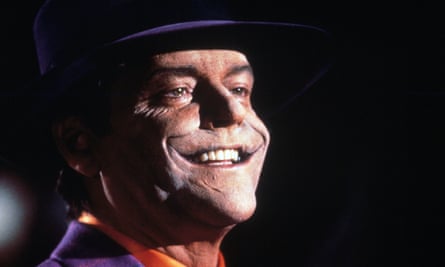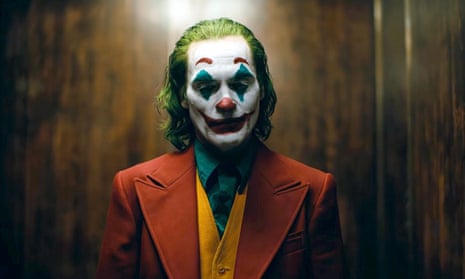For the modern Hollywood producer with one eye on a money-spinning sequel – or even a full-blooded cinematic universe – some movies create more problems than they solve. Warner Bros’s Batman vs Superman: Dawn of Justice provided the superhero smackdown every comic book fan thought they wanted to see, but it ruined the Dark Knight for the big screen for the best part of a decade (outside of those zippy and imaginative Lego Batman flicks). Star Wars: The Phantom Menace gave us Anakin Skywalker before he turned to the dark side, but George Lucas’s decision to show us the future Darth Vader as a child ended up infantilising the prequel and its followups. Alien Resurrection brought Sigourney Weaver’s Ellen Ripley back from the dead as a clone of herself, but … well, you know the rest.
Todd Phillips’ Joker has the same problem. A few weeks ago in this column, I speculated that Warner Bros are likely to want to unite Joaquin Phoenix’s clown prince of Gotham with Robert Pattinson’s caped crusader in a putative sequel to the forthcoming The Batman. But having now seen Joker, it’s much more difficult to imagine anybody wanting it to be the spark that ignites a new cinematic universe of darker Gotham stories.
Phillips’s movie is essential viewing for anyone with more than a passing affection for the 1970s and early 80s films of Martin Scorsese and Robert De Niro – King of Comedy and Taxi Driver in particular – to which it pays fulsome tribute with its vision of a troubled, semi-psychotic working-class white male left to fend for himself by society, with disastrous results. Joaquin Phoenix’s performance as Arthur Fleck is one of startling, nihilistic majesty – a jewel found shining among dead things. And yet this is not a film to fire up the fanboys and girls with excitement about future episodes – despite Phoenix’s stated desire to return to the role. For it takes the Joker, and the uncaring Gotham that spawned him, to such jagged, curdled depths of inhumanity that it’s difficult to imagine even Batman being able to pierce the doom-laden malaise.
Where earlier incarnations of the Joker – Jack Nicholson’s leering pantomime villain; Heath Ledger’s sketchy schemer – had a sense of spiky and operatic joie de vivre, there is nothing about Fleck’s descent into madness likely to have the average viewer leave the cinema with a spring in their step. He murders his own mum, kills his friends and stalks his pretty neighbour like the worst kind of incel freak. This is a tale of desperation and decay; of a cruel, cruel world that creates an even crueller man. Perhaps the Joker we see right at the end of the movie, when he has become a hero to hordes of Gotham’s discarded young men, has the potential to become the kind of larger-than-life villain that everybody loves to hate. But it is hard to imagine anyone ever warming to Phoenix’s tortured, pencil-thin iteration. The natural response here is a blend of pity and revulsion.

Perhaps Joker could provide a sort of Casino Royale-style reset for the Batman universe, wiping out every last trace of over-the-top silliness, so Matt Reeves’ The Batman (due in 2021) can start out with a fresh slate. Phillips’s film certainly sets up a future confrontation between Batman and the Joker – the former has an axe to grind because Fleck’s actions inadvertently led to the murder of his parents, while the latter resents Bruce Wayne for getting the gilded upbringing he believes he was cruelly denied.
And yet this would likely be a version of the caped crusader’s home city even more malevolent and stripped of fantasy stylings than Christopher Nolan’s much-loved Dark Knight trilogy. At some stage we will have to ask ourselves what the point of these comic book movies is, if all the fun stuff has been flushed into the Gotham sewers.
Despite its box-office success, Phillips’ movie may only ever have been intended as a tantalising one-shot, a “what-if” entry in the style of the controversial comic book from which it draws so much inspiration, Alan Moore’s The Killing Joke. Intriguingly, though, that graphic novel ultimately ended up feeding into wider DC Comics continuity. At the end of the movie, it is hinted that Fleck has escaped incarceration in Arkham Asylum to wreak havoc on the streets of Gotham. I wonder if this version of the Joker, as marvellous as Phoenix’s performance is, really ought to have been kept locked up in a padded cell, so we never have to see him on the big screen again.
